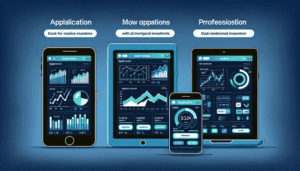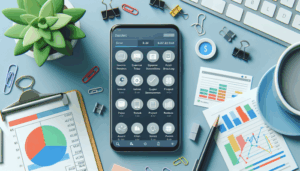O conscious use of credit cards is one of the biggest challenges of modern financial life.
While many people consider the card to be an indispensable ally, others see it as a trap that leads to debt. The truth is that it all depends on how you use it.
When used responsibly, cards can bring security, practicality and even extra benefits. On the other hand, irresponsible use can generate high interest rates and compromise your budget for years.
In this complete article, you will learn:
-
What are the main benefits credit card;
-
What are the disadvantages and risks most common;
-
Practical strategies for conscious use;
-
How the fees and interest;
-
Tools that help financial planning.
Credit Card Benefits
1. Convenience and practicality in everyday life
First of all, it's important to note that credit cards are accepted practically everywhere: physical stores, websites, delivery apps and even public services in some cities.
This convenience reduces the need to carry cash, making transactions faster and safer.
2. Greater shopping security
Unlike cash, which is difficult to recover if lost, cards offer protection.
If it is stolen or misused, you can cancel it immediately with the administrator.
In addition, many brands offer fraud insurance, This brings even more peace of mind.
3. Possibility of installments
Another important benefit is the option to pay for purchases in installments without interest in various situations. This allows you to buy more valuable goods without compromising your monthly budget all at once.
However, this advantage should be used with caution, as too many installments can jeopardize future months.
4. Rewards and cashback programs
Many cards offer points that can be exchanged for products, discounts or even air miles.
In addition, the cashbacks have been gaining popularity: part of the amount spent is returned to you in the form of a credit on your bill.
When the user is able to pay on time, these programs become a great ally.
Disadvantages of Credit Cards
1. Easy to overspend
The main pitfall of credit cards is the feeling that the money “isn't coming out of your pocket”.
This ease can lead to impulsive consumption and compromise the budget even before the salary arrives. That's why discipline is essential.
2. High interest rates
Brazil is one of the countries with higher interest rates on revolving credit. If you don't pay your bill in full, interest begins to accrue immediately.
A small debt can turn into a big problem in just a few months.
3. Risk of compromising credit score
Improper use of the card can damage your credit score. This means that in the future you will find it more difficult to get financing, loans or even another card.
How to Use Your Credit Card Consciously
1. Know and respect your limits
The card limit is not an extension of your salary. It only represents the confidence that the financial institution has in your ability to pay.
So always use it considering what really fits into your budget.
2. Do some financial planning
Having a detailed financial planning is essential. Write down your expenses, categorize them (food, transport, leisure, etc.) and keep track of how much of your budget is being committed to the card.
Today there are apps such as GuiaBolso e Mobills that help with this control.
3. Pay your bill in full
The number one rule for conscious card use is: always pay the full amount of the invoice. This way, you avoid falling into revolving credit and don't pay unnecessary interest.
If you can't pay it off in full, pay as much as possible and adjust your spending next month.
4. Avoid the minimum payment
The minimum payment may seem like a quick fix, but it's a trap. The remaining balance goes straight into the revolving account, where interest rates are extremely high. This practice should be avoided as much as possible.
5. Research before you buy
Another important habit is compare prices before using the card. Convenience can often lead to impulse purchases.
Ask yourself: “Do I really need this now?” and “Does it fit into my budget?”. These questions help control consumerism.
6. Evaluate the benefits of the card
Analyze whether the rewards offered by your card really pay off.
Often, a card with free annual membership can be more advantageous than another full of benefits that you'll never use.
Understanding Credit Card Fees and Interest
What are credit card fees?
The fees are additional charges made by the administrator. Among the most common are:
-
Annuity: charged for offering benefits such as points or cashback.
-
Delay ratewhen the invoice is not paid by the due date.
-
Withdrawal feeThis is applied when you withdraw money with your card.
-
International transaction fee: charged on purchases made abroad.
How does interest work?
Whenever you don't pay your bill in full, the remaining amount goes to the revolving credit.
This balance accumulates compound interest, In other words, you pay interest on interest, which can quickly multiply your debt.
Most common types of interest
-
Promotional rate: offered for a limited time to attract new customers.
-
Standard rateThe new rate : comes into effect after the promotional period.
-
Penalty rateThe penalty is applied when there is a delay in payment.
Advanced Strategies for Conscious Use
1. Create a personal limit
Even if your card has a high limit, set a personal spending limit. For example, if your limit is R$ 5,000, but your income is R$ 2,500, only use up to R$ 1,000 on the card.
2. Have a spare card
Keeping a second card, preferably with no annual fee, can be useful in emergencies. This way, you avoid committing your entire limit to just one card.
3. Use the card to build credit
A history of punctual payments increases your credit score. This can make it easier to obtain future financing, such as for the purchase of a car or property.
4. Avoid credit card withdrawals
This is an extremely expensive practice, because in addition to interest, specific fees are charged. Always use your card for purchases only.
Digital Tools that Help Control
Nowadays, there are many apps that help you use your credit card consciously:
-
GuiaBolsoautomatically connects to your accounts and cards.
-
Mobillsideal for tracking spending and setting limits.
-
Organizze: helps you visualize your monthly financial health.
-
Superdigitalprepaid card that avoids debt.
These tools are practical and can be accessed directly from your cell phone, helping you to keep your financial life organized.
Conclusion
O conscious use of credit cards is fundamental to turning this tool into an ally in your financial life.
When managed well, it offers practicality, security and benefits that can even generate savings.
However, misuse can jeopardize your budget for years.
The key is balance: respecting limits, always paying on time and planning every expense.
By following the tips in this article, you'll have much more control over your finances and be able to take advantage of all the benefits the card offers without falling into debt traps.
📌 Final tipIf you want to find out even more, check out the official websites of the main brands:






